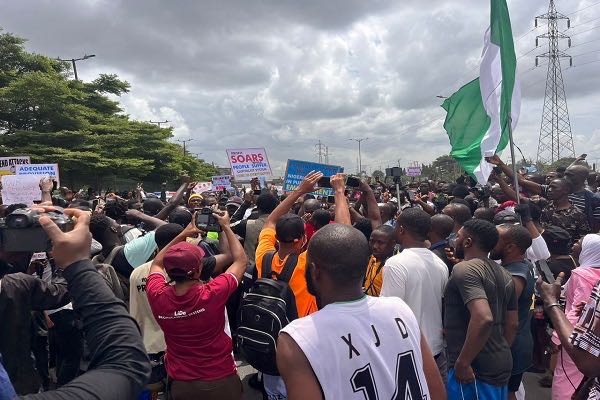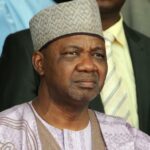I suppose we all deserve a sigh of relief. The first 10 days of this August could have snowballed into a monster foretold by the legends of old—the African Spring. The guns, the jackboots and the adrenaline were out again… and the testosterone was in the streets too.
I don’t know if it was my resignation to the fact that we are at the mercy of forces we couldn’t control or perhaps it was matter of obeisance to one of the 48 Laws of Power – the one about hating what you can’t have.
When the popular protest movement was being planned for the first 10 days of August and the country consequently came into lockdown, as is usually the case, the protests led to clashes with security agencies whereas others passed off smoothly. Some pundits made efforts to pull together a continent-wide narrative of grand revolution on the scale of the Arab revolts that toppled so many despots and democrats alike.
Here, an Africa-wide review of 2024 is key especially in drawing similarities with the fabled Arab Spring.
- FG to recruit 3,500 teachers into unity colleges
- Thailand’s Court sacks Prime Minister Srettha Thavisin
The protest movement that toppled Abdul Aziz Bouteflika in 2019 continued its mass action, and in time also targeted the Abdelmajid Tebboune government that took over from Bouteflika.
A series of mass protests, nationwide rallies and peaceful demonstrations in that country were held to demand real democratic reforms and a dismantling of the deep state that was birthed by the Bouteflika years.
Again, in Tunisia, protests were restarted with respect to the government’s handling of COVID-19, corruption and general economic crisis etc. The height of the protest was when President Kais Saeid dismissed the National Assembly and assumed its powers forcing mass protests to protest what was tagged a power grab.
In West Africa, protests have rocked Mali, Burkina Faso, Senegal and Ghana.
In Mali, protesters demanded that the government must defy European Union and France to enter into a security agreement with Russia in the fight against terrorists. The protests started in May while in October, anti-France protests were held especially in Bamako.
In November, Burkinabes took to the streets to demand government action in the wake of deadly attacks by terrorists in the country. This came at a time the president had taken the Defense portfolio and subsequently, the then-PM Joseph Dabire resigned.
In about the same time Senegal was engulfed in mass protests that centred around the arrest of a rising young politician Ousmanou Sonko, a lawmaker and former Presidential aspirant.
He was charged with rape but most of his followers insisted that it was a case of political witch-hunt and a ply to silence potential challengers to President Macky Sall, the protests led to deaths and destruction of public and private property in parts of the country. He won that battle and is now prime minister, while his disciple is now president.
In the case of Ghana, multiple protests were held in the country largely with full support and cooperation of the police despite these protests being against government and its policies.
The #FixTheCountry protests evolved from an online agitation till it hit the streets of Accra and another regional capital. A protest against a new tax proposal, the electronic transactions levy (E-levy) that a group wanted scrapped. Law students held protests as did toll booth workers and a teachers’ group. What is common in all these crises is the fact that the masses decided to call it quits. Nothing was sacred anymore and everything is fair, even actions that are counterproductive.
This reminds me of the second day of the lockdown in Kano, after a curfew was declared following violent clashes between hoodlums and security forces. I, along with a few friends stood as an endless train of looters walked along the old rail tracks going to Nguru, apparently to avoid the main roads and the police roadblocks on them in order to escape with their loot. They carried on their heads, over their shoulders or just in their hands everything from ceiling fans to office chairs and even TOILET SEAT COVERS! These were scenes that didn’t make any sense but actually made a lot of sense. Here was a statement being made!
These young people have had enough. So much that they didn’t even know that they were actually hurting themselves. That or maybe they knew but just couldn’t care any less.
I saw clips of hoodlums vandalising the traffic lights along State Road. I wondered if they were aware that those things all have to be replaced. I have a contractor friend, who is also a part-time politician and has done such jobs in at least two states in the North West. I imagined that these street actions are targeted at people like that. At the end of the day, people like this friend of mine will be contracted to fix and replace everything that has been vandalised or carted off. Yes, the protesters have made a point, but the elite class will be invited to “chop” and they will smile all the way to the bank. At whose loss?
In Chad, it was anti-government protest after son of Idris Deby was appointed President and leader of transition after his father’s death. Pro-government protests were also held at the same time.
In the DRC, it was the students who took their protests to the National Assembly, demanding that government negotiates with striking teachers to return to the classrooms.
Cameroon’s Anglophone crisis rolled on unabated but it was in Bamenda that people flooded the streets to protest the death of a young girl who had been shot mistakenly by government forces.
In Sudan, many people died during the revolution. But the military coup that removed civilian PM Abdalla Hamdock and ripped the civilian-military transition of 2020 triggered new protests against the military rulers. Today, Sudan is torn to pieces. I lived with a neighbour in one the apartment blocks I lived in who is a refugee from Sudan. She would gather us and tell us stories how this, what was happening in Kano, was how it all started in Sudan.
In Ethiopia, the protests in were largely concentrated in the capital Addis Ababa and were against a rampaging rebel advance. The Tigrayan rebels had spread their fight with the federal government and were bent on reaching Addis Ababa to remove Abiy’s government. These protests were in support of the government and also to denounce imperialism after people alleged that the EU and US were supporting the rebel advance. Some protests also lauded Russia and China as worthy allies while slamming the US and EU. Protesters in Kano, Kaduna and Bauchi also marched with the Russian flag.
In tiny Eswatini, pro-democracy activists gave the Mswati government a hard time in a protest that got support from a wide range of people including students and nurses. In South Africa, the protests were a mix of politics, security and ended with economic consequences. Former President Jacob Zuma was jailed for contempt of court (the politics) and his base got riled up and went on a rampage in economic hubs, burning and looting from major shopping centres (the economic).
Eventually, the government pointed to security implications while counting the huge economic losses that resulted in the protests. It took a joint deployment of police and the military to quell the crisis.
The first 10 days of August were a time for those in charge of our lives to reconsider the decisions they make. It was also a time for us to reflect on what we as citizens did wrong or are doing wrong. It’s now or never. The next time this happens, it may be the last time it will happen… if you know what I mean.

 Join Daily Trust WhatsApp Community For Quick Access To News and Happenings Around You.
Join Daily Trust WhatsApp Community For Quick Access To News and Happenings Around You.


